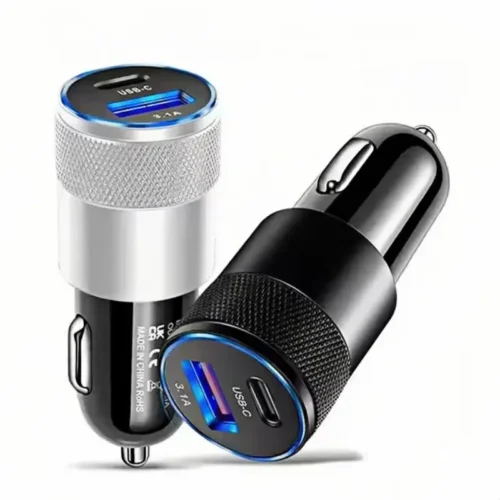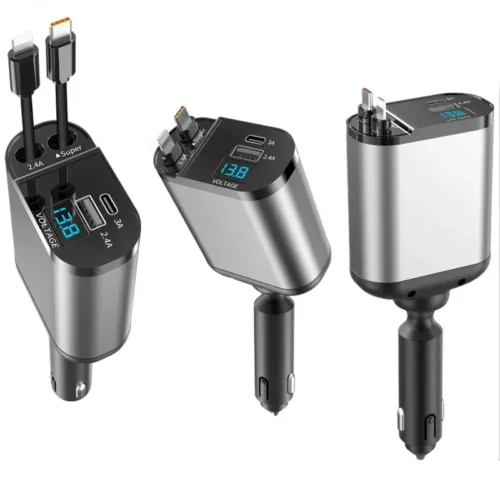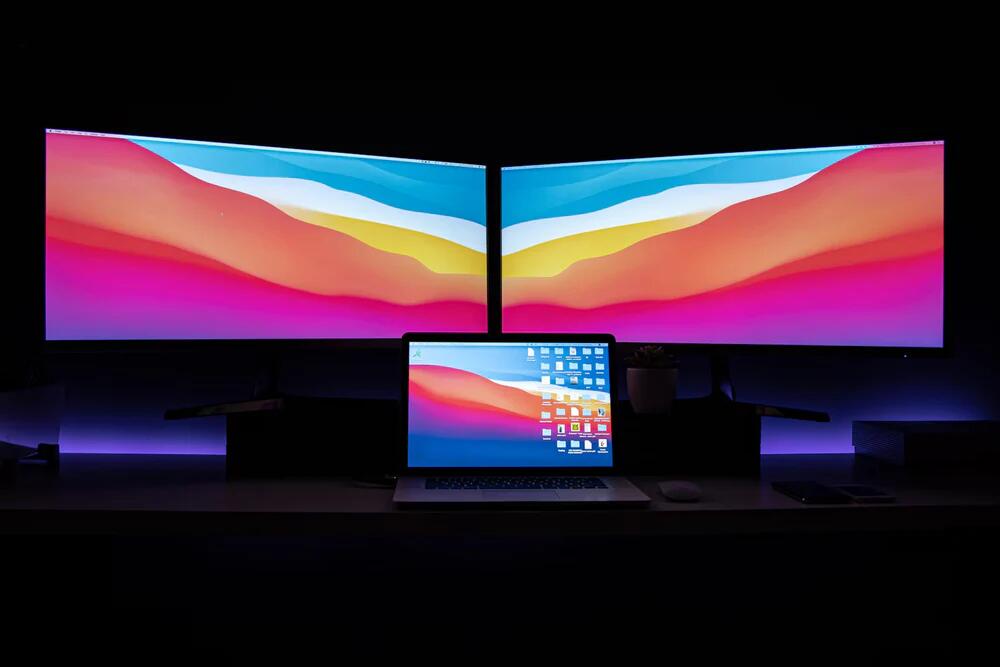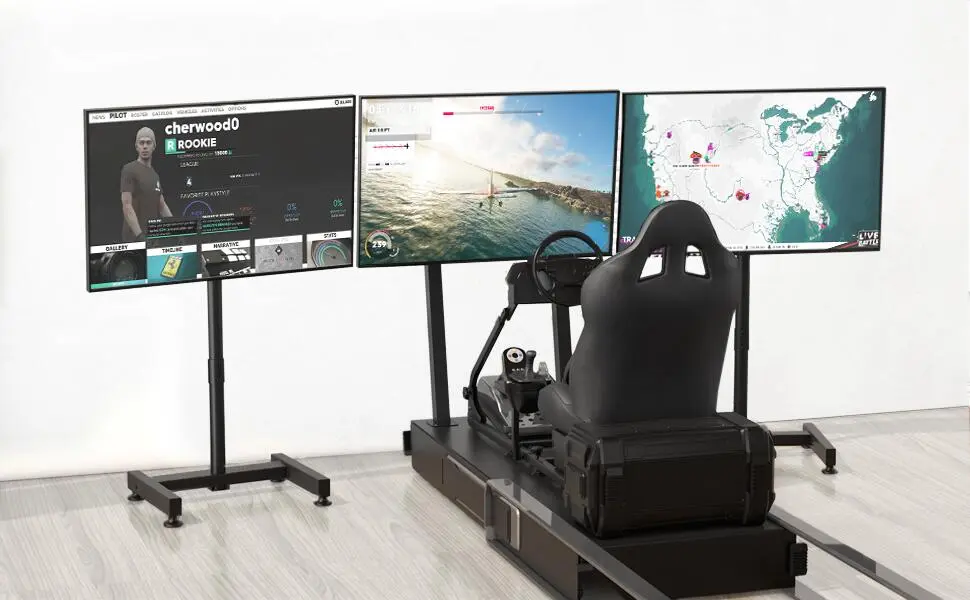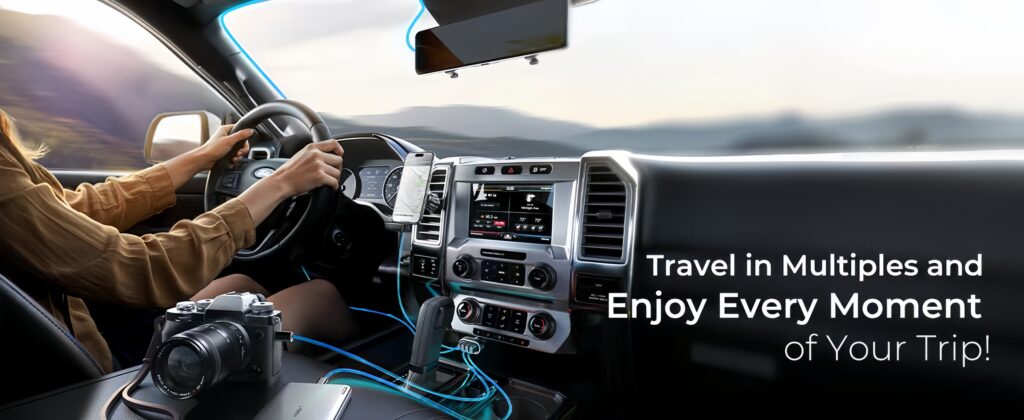
Long road trips are a rite of passage for adventurers, families, and anyone who loves the open road. Whether you’re cruising through winding mountain passes or barreling down endless highways, one thing’s for sure: staying connected and powered up is non-negotiable.
Enter the unsung hero of modern travel—USB-C car chargers. These small little gadgets have made a huge difference in how we get our devices moving on the go, and they’re almost a must-have item for any person embarking on a long trip.
Here, in this blog, I will discuss why USB-C car chargers are a savior when it comes to long road travel, how they work, and what to look for to make your next journey stress-free and hassle-free.
Why USB-C Car Chargers Matter on Long Trips
Picture this: you’re halfway through a 10-hour drive, your phone’s battery is blinking red, and your GPS is about to call it quits. Meanwhile, your kid in the backseat is whining because their tablet died mid-movie. Sound familiar?
It’s scenarios like these where a reliable USB-C car charger steps in to save the day. In contrast to the slow-charging, bulky adapters of yesteryear, USB-C car chargers deliver rapid, effective power to nearly anything these days—phones, tablets, even laptops—making them perfect for those marathon drives that define long-distance road travel.
So why is USB-C different? It’s speed and versatility. With USB-C and its support for Power Delivery (PD), you’re looking at charging speeds that can juice up your smartphone to 50% in under 30 minutes, depending on the device and charger specs. For long trips, this means less downtime and more uptime for navigation apps, music playlists, or that audiobook you’ve been hooked on.
And, of course, USB-C’s reversible plug is a minor but sweet victory—no more trying to thread the cable in the dark.
Charging Multiple Devices on the Road
Another great thing about USB-C car chargers is that they can handle several devices at once. Road trips take a while, and several people on the trip means several gadgets to keep charged.
My last family outing was a perfect example: my iPhone had Google Maps open, my wife’s Samsung had Spotify streaming, and our outdated iPad was distracting the kids with cartoons. One-port USB-C car charger that has enough wattage—or ideally, a multi-port one—can handle all that without sweating.
Take, for instance, a dual-port USB-C car charger. You might get one port pumping out 30W for a quick phone boost and another delivering 18W for a tablet. Some high-end models even offer 65W or more, enough to charge a MacBook or a Nintendo Switch while you’re stuck in traffic.
For a long haul, this kind of flexibility is clutch. You’re not just charging; you’re keeping everyone happy and entertained, which, let’s be honest, is half the battle on a family road trip.
Compatibility: One Charger to Rule Them All
Another reason USB-C car chargers shine on long journeys is their universal appeal. Gone are the days of packing a separate charger for every device. USB-C is the great leveler—Apple’s latest iPhones use it, Android phones have switched to it, and even newer laptops like the Dell XPS or HP Spectre are derived from it.
On a road trip out west last summer, I brought one 45W USB-C car charger and two cables, and it charged anything from my Pixel to my wife’s MacBook Air. No muss, no fuss.
That said, compatibility isn’t always perfect. Some older devices might need a USB-A to USB-C cable, and not every USB-C car charger supports the full range of Power Delivery profiles. For long trips, it’s worth double-checking your gear. A charger with PD 3.0 and a solid wattage range (say, 20W to 60W) will cover most bases, ensuring you’re not left stranded with a dead device in the middle of nowhere.
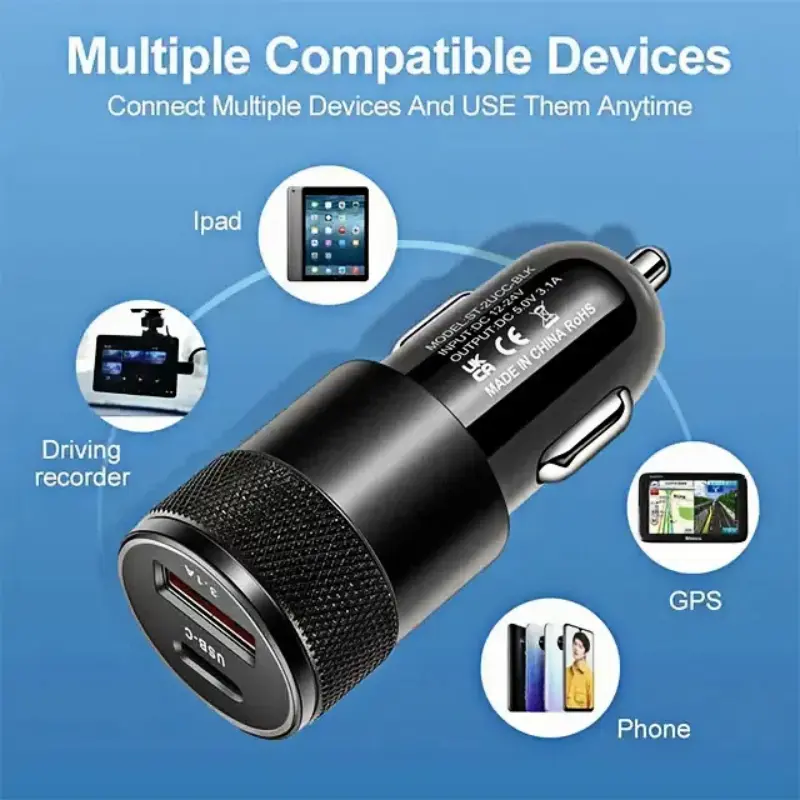
Safety First: Charging Without the Risks
Long drives can put your car’s electrical system—and your charger—to the test, so safety is key. Top-rated USB-C car chargers include protections against overvoltage, overheating, and short circuits.
I did it the hard way a couple of years ago when an inexpensive charger fried my phone’s battery during a long nighttime drive. Ever since then, I only use brands such as Anker or Belkin, which consider safety as much as speed.
For longer road trips, find a USB-C car charger that includes smart charging technology. Such devices modify the power level according to what’s being charged, so your iPhone isn’t subjected to laptop-sized voltage. It’s an unobtrusive feature, but after several hours on the road, it helps prolong the lifespan of your devices—and your serenity of mind.
Real-Life Scenarios: USB-C Car Chargers in Action
It’s time to be practical. Imagine you’re driving from Los Angeles to San Francisco—a solid six-hour stretch, longer with traffic. Your phone’s your lifeline for navigation, but you’re also snapping photos of the Pacific Coast Highway and texting updates to friends.
A 30W USB-C car charger with PD can keep your phone topped off without slowing down your photo spree. Add on a passenger while holding a tablet playing Netflix, and a dual-port USB-C car adapter is your MVP, charging both without an issue.
What to Look for in a Long-Trip USB-C Car Charger
Not all USB-C car chargers are created equal, especially for long hauls. Here’s a quick rundown of what to prioritize:
- Wattage: Aim for at least 20W for phones, 30W+ for tablets, and 60W+ if you’re charging laptops. More power means faster charging, which is key when stops are short.
- Ports: One-port is okay for individuals, but multi-port USB-C car chargers are a blessing for groups.
- Size: Slim models fit snugly in your car receptacle without having cables dangling all over—a requirement for bumpy roads.
- Durability: Go for tough build-ups. A charger that lasts the duration of a week-long journey should last years of service.
- Brand Reputation: Use reputed brands. Counterfeits save you a few dollars but will cost you a device—or worse.
For my latest outing, I purchased an Anker PowerDrive 40W dual-port USB-C car charger. It’s small, it’s got some punch, and it hasn’t disappointed me so far. Your mileage will obviously vary, but the principle is: match charger to purpose.
The Future of USB-C Car Chargers on the Road
As cars get smarter and electric vehicles take over, USB-C car chargers are evolving too. Some new EVs come with built-in USB-C ports, but a standalone charger still offers more flexibility.
With USB4 and higher wattages on the horizon, these little powerhouses will only get better, making long trips even more tech-friendly. Imagine charging your entire setup—phone, drone, laptop—in a fraction of the time it takes now. That’s where we’re headed.
Don’t Leave the Road Without One
Long road trips are all about freedom, but that freedom is lost in an instant when your devices die. USB-C car chargers—whatever you call them, whether car adapters, power hubs, or lifesavers—are the key to staying charged up, plugged in, and sane wherever you roam.
ONext Related Products
ONext USB C car charger 67W 2 port compact Phone Charger Car Adapter Charger, suitable for iPhone , Galaxy S, MacBook Pro, iPad Air etc. (including USB-C to C cable)
ONext Retractable usb c Car Charger 69W Super Fast Charge Car Charger with 2 Longer Retractable Cords, Type C Car Charger, Fit for iPhone , Galaxy
